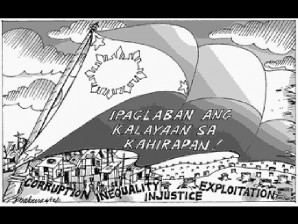Freedom and honor
Today, 113 years ago, it was first unfurled. Hoisted in public for the very first time, the three stars and the sun, the flag of the Republic of the Philippines, flowed proudly and freely with the wind. It was only one of many meaningful and significant things to occur on June 12, 1898 as Gen. Emilio Aguinaldo proclaimed in Kawit, Cavite the birth of independent Philippines.
Along with the new nation came a new flag, even a new song – its martial rhythm heard for the first time by the Filipinos – which eventually would become “Lupang Hinirang,” our national anthem.
Article continues after this advertisement“We do hereby proclaim and declare solemnly in the name and by authority of the people of these Philippine Islands, that they are and have the right to be free and independent.” In an act of courage and destiny, the Declaration of Independence was read and signed by those present – breathing life into the First Republic of the Philippines, at last free from the shackles of more than 300 years of Spanish rule even as it had to contend with the new leashes wangled by agents of American imperialism.
That first date of independence would be obscured during the American occupation. Our new colonizers gave us a new day of independence, one which echoed their own, July 4 – and June 12 was relegated to “flag day,” ignoring the other important aspects of the latter date. But in 1964, Republic Act 4166 restored June 12 to its proper state, Independence Day from then on and beyond.
This year’s Independence Day comes amidst another significant source of remembrance. June 19, 2011 marks the 150th anniversary of the birth of Jose Rizal, our national hero, who was born in Calamba, Laguna in 1861. That these two days should fall within a week of each other further emphasizes the importance of both to our identity as a nation and as a people.
Article continues after this advertisementThese are two elements – the Philippine Republic and Jose Rizal – which we have memorized since we were children and drilled into our nation’s consciousness. Sometimes, such familiarity and their frequent appearances in our school exams breed a kind of respectful apathy. We know these are important things, we just get tired of constantly repeating the whens and the whos. But standing at the crossroads of these two lodestones of Filipino nationhood, we can see how one fits with the other, and how the two make sense together. Rizal represented the best of us, an intelligent, well-rounded man who was not only excellent in school but was creative as well. He broke barriers and even though he spent much time abroad in Europe, he was inexorably drawn back to the Philippines. Through his writings, we beheld the bright prospect of a Philippines without foreign rule. On Dec. 30, 1896, Rizal sacrificed his life on the altar of martyrdom to prove his point.
The proclamation of Philippine independence on June 12 two years later was the fulfillment of that promise. Rizal dared to dream of a true Filipino nation; Aguinaldo and his contemporaries spoke out its name, waved its banner, and listened to its song.
Now, we find ourselves under the unique circumstance of a people who seem to be finding pride in their independence, as the unmistakable silhouette of our islands appears on shirts worn by so many; or our nation’s name prominently featured on shirt fronts. It is a great time to be proud of being Filipino.
Now that we have found ourselves as a nation, it is time to complete the journey that started with Rizal and June 12 over a hundred years ago. The Philippines boasts of a vibrant and proud people, with a distinctively diverse culture and a fierce knowledge of themselves as a state.
But whereas we have made mighty strides in education, legislation and even sports, we have one last aspect to transform. After all these years, we remain an economy that is anything but independent. Our economy remains dependent on the dollar and every hiccup of the world crude prices sends our local oil prices into a swoon and our markets into shivers.
It is for the future generations of Filipinos that we must free ourselves completely, not the least from poverty. It would be the true remembrance of Rizal’s ideals and the dreams of June 12, a nation that truly stands on its own, a genuine independence in spirit and shape, as we remember those words from long ago: “And imbued with firm confidence in Divine Providence, we hereby mutually bind ourselves to support this Declaration with our lives, our fortunes, and with our most sacred possession, our Honor.”
















